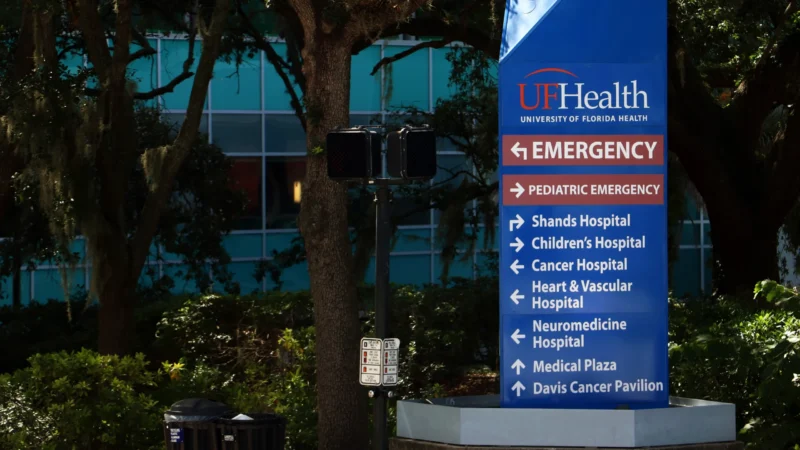Florida State University and its 30-year relationship with the Atlantic Coast Conference could soon be over. The university is moving to split with the conference, but first it has to navigate a series of legal hurdles to determine whether a divorce is even possible.
The disagreement between FSU and the ACC centers on money — specifically, how much FSU is getting in the relationship. The school has argued it’s not being paid what it is worth to the conference, and that with each passing year, the revenue gap between it, and its competitors in other conferences, gets larger and larger.
The Associated Press reported last year that the ACC distributed an average of $39.5 million per school in the 2021-22 season, which was about $10 million less than schools in the Southeastern Conference received. The gap is expected to grow to $30 million in the upcoming year. Furthermore, the university now estimates it could cost more than half a billion dollars to leave the ACC, a sum Greenburg Trauig’s David Ashburn said was among the highest of any conference.
“A 2023 withdrawing member is subject to a penalty package of over $570 million,” said Ashburn. It’s a situation FSU argues makes it virtually impossible to leave the ACC and is a “violation of Florida statutes,” because the school cannot “exercise our fundamental right of withdrawal.”
FSU also argues that the withdrawal penalty is unenforceable and could violate antitrust laws because the amount has no relationship to the harm its departure could cause to the conference. The ACC recently added three new members over the schools’ objection, thus making the university’s share of revenue even smaller.
The ACC’s moves, said university president Richard McCullough, have left FSU no choice but to fight it out in court.
“At the end of the day … it’s not reasonable to freely decide the fate of our athletics program. And without that, it means we’re essentially bound by this onerous penalty that was created completely superfluously by the ACC,” he said. “We have to do what’s best for this university and our athletics department.”
FSU argues the split with the ACC is needed for its programs to stay competitive in the age of Name, Image, and Likeness deals for student athletes and heightened visibility of programs. The university has attempted to negotiate the revenue split before, with no success.
The other problem facing the school is a tangled mess of legal hurdles that center around what deal the ACC has with ESPN for media rights. FSU, and other ACC schools, sold their media rights to the ACC upon becoming members, and the ACC then sold those rights to ESPN for an undisclosed amount of money.
The university has estimated it would cost about $130 million to leave the ACC, but it has no idea how much it would cost to regain its media rights from ESPN. The school doesn’t have access to that contract, said university General Counsel Carolyn Eagan, and has been able to see it only in person.
“It’s closely guarded” at the ACC headquarters,” she said.
At major schools like Florida State, football often underwrites other smaller sports, women’s sports and some academic programs.
“One of the greatest sources of my pride in Florida State has been our women’s sports programs and their prowess,” said FSU Trustee John Thiel. “Yes, it’s about football, but it’s the engine that drives all this other source of pride and impact on young women at Florida State University so …this is just so critical to our future and everyone in athletics, not just a football program.”
The women’s soccer team recently secured its fourth national title, and women’s volleyball recently competed for one as well.
The decision to start the ball rolling on a departure also comes in the wake of a major blow to FSU. The undefeated Seminole football team was denied the opportunity to play for a fourth national title by the College Football Selection Committee — a decision the school is still reeling from. In announcing FSU’s exclusion, the committee cited the strength of the schedule and the loss of quarterback Jordan Travis to injury. FSU had already been seeking ways to leave the ACC for more than a year, but the committee’s move added insult to injury.
“I view this as us doing our part to look out for ourselves but also to take a step in the right direction so that every student athlete has a chance to be rewarded for the hard work they put in, in some cases, decades,” said FSU Trustee Drew Weatherford.
“My heart breaks for our team just knowing what it’s like to go through all that [and] to be disappointed in the end.”
9(MDEwNzczMDA2MDEzNTg3ODA1MTAzZjYxNg004))






